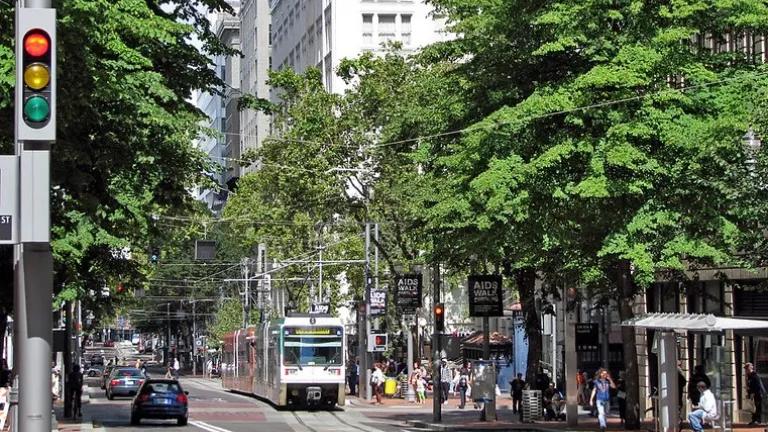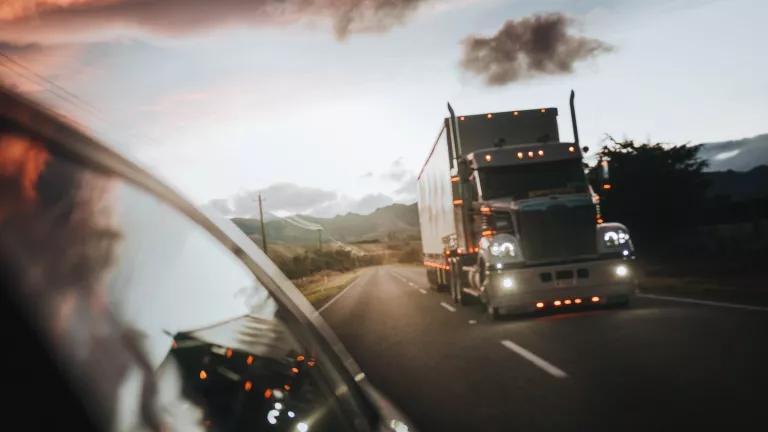Portland Acts on Climate, Equity with Parking Fee
The city has passed a resolution to generate revenue by increasing parking rates to better capture the true cost of driving—to climate and communities—and use the revenue to bring greater equity to the transportation system.

In July 2020, Portland, Oregon declared a climate emergency. An emergency demands action, and today, Portland has taken an important action on both climate and equity. The city passed a resolution to generate revenue by increasing parking rates to start capturing the true cost of driving—to the climate and communities—and using the revenue to provide more transportation options for those who need them most.
This is a first step to implement the recommendations made by the city's Pricing Options for Equitable Mobility (POEM) task force, which the City Council passed in October 2021. The creation and support of the POEM task force by city staff was a model of thoughtful stakeholder engagement. For two years, amid the pandemic, the community members on the task force deliberated how to use price signals to reflect the true cost of driving private cars. The task force also deliberated about where and how any revenue should go: what investments could address the inequitable transportation system to bring more affordable mobility to all, especially communities underserved or negatively impacted by past transportation decisions.
Now, the City has taken the first action on those POEM recommendations: the City Council unanimously passed a resolution in support of PBOT's revenue strategy by increasing parking rates. This will accomplish three important things:
- Create a new "climate and equitable mobility" transaction fee on each parking meter transaction. This is a small fee, just 20 cents, but it's a start to act on the POEM recommendations to capture part of true cost of driving and put the resulting funds directly in service of climate and equity, providing residents of affordable housing with passes for public transit, bike-share, and many other transportation options
- Stabilize transportation revenues lost in the pandemic that are critically needed to offer better transportation options, especially to those who need them most. This is a core need both for climate action—to reduce Portland's largest source of greenhouse gas emissions, from the transportation sector—and for bringing more equitable transportation service to residents, as this is key to access and opportunity. This revenue gained from this resolution will also be used to increase road safety by funding “quick-build” infrastructure projects that make high-priority routes safer for walking, biking, and riding transit.
- Transition away from relying on revenue from fossil fuels to a more sustainable model.
The COVID-19 pandemic has created major deficits for transportation agencies across the country. Stabilizing transportation revenues lost in the pandemic is critical, especially to continue and expand the city's transportation affordability and incentive programs, such as the city's Transportation Wallet and BIKETOWN for All. More information on the revenue strategy is available from PBOT here.
To address the biggest source of greenhouse gas emissions—transportation—we need to recognize the true cost of driving, to protect both our climate and our communities. Portland is designing price signals to do that, while funding better transportation options for those who need them most.
Portland has been a leader in this space, with support from the Bloomberg Philanthropies American Cities Climate Challenge.
We look forward to Portland taking more steps soon with more policies that address the climate crisis thoughtfully, equitably, and boldly.



